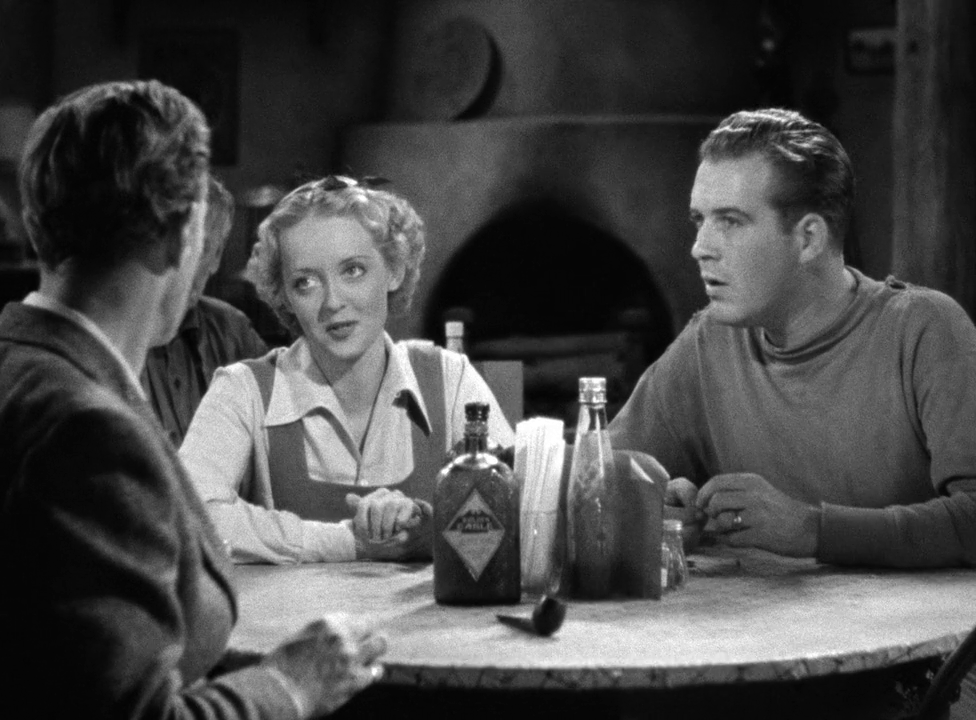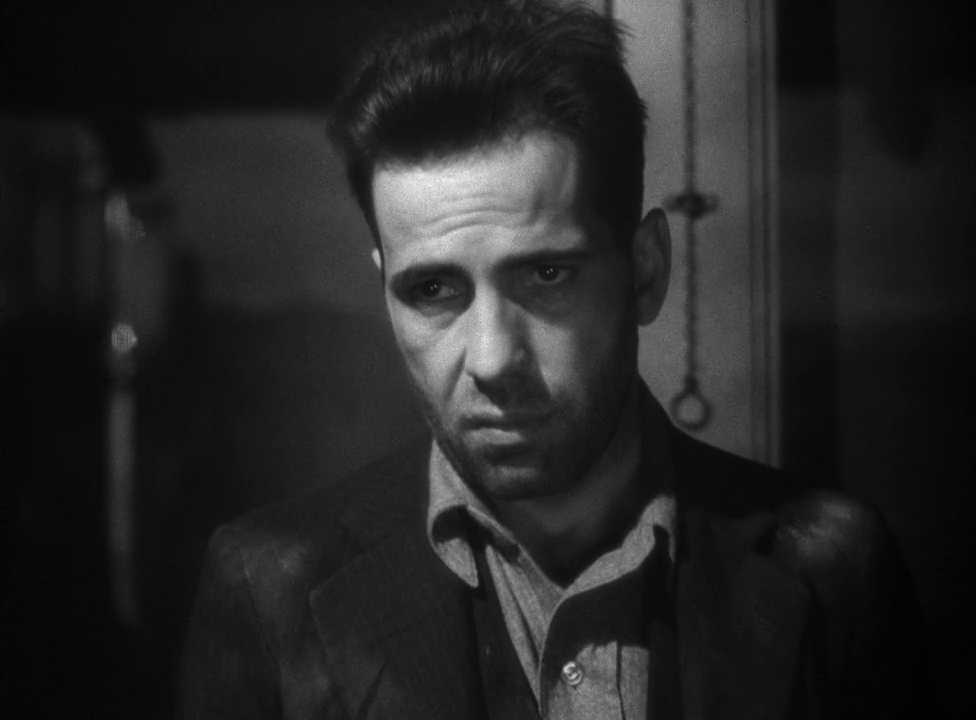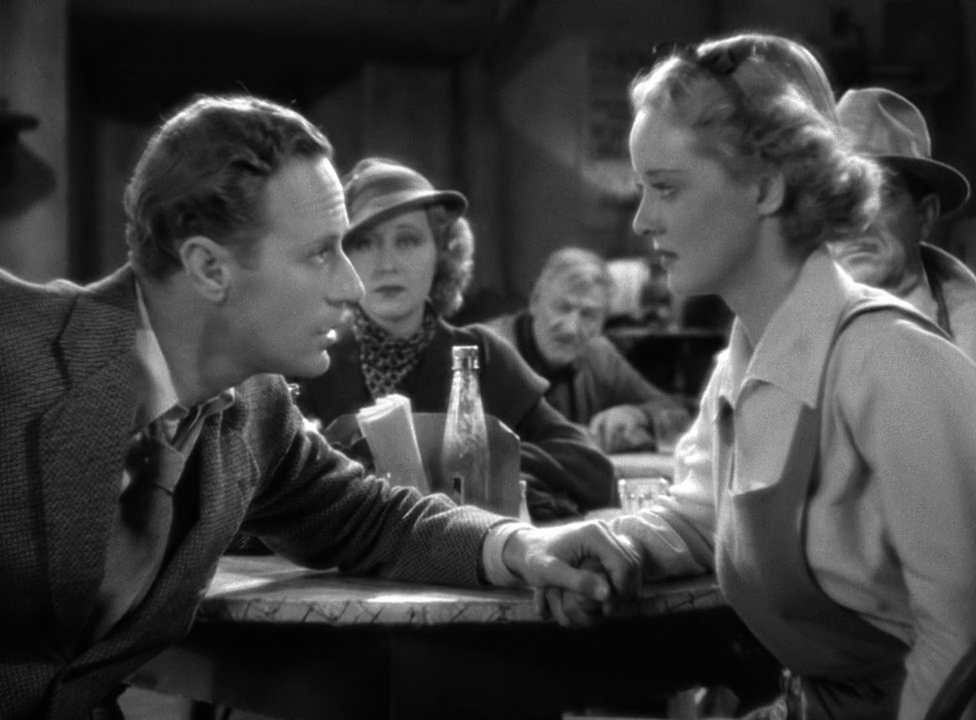|
Genres, Themes, Actors, and Directors:
- Bette Davis Films
- Gangsters
- Hostages
- Humphrey Bogart Films
- Leslie Howard Films
- Play Adaptation
- Writers
Response to Peary’s Review:
Peary opens his review of this adaptation of “Robert E. Sherwood’s philosophical play” by noting it “provided the cinema with one of its few intellectual protagonists who wasn’t a mad scientist”, and adds that while the “adaptation is a bit stagy” it’s “generally well directed by Archie Mayo”. He notes that “wide-eyed Davis gives a fine, unassuming performance, and Howard, if he’d just stop talking for five seconds, is a good match for her”, while “Bogart and the other supporting players are well cast.” He points out a particularly interesting scene “in which a black gangster [Slim Thompson] reminds a black chauffeur [John Alexander], who needs orders from his rich white boss before doing anything, that they’ve been emancipated”, and notes that “Sherwood’s play is about the need for every repressed person to rebel against the particular ‘order’ — be it sexual, financial, racial, physical — in which he finds himself.” While I agree the film is a “bit stagy”, it never feels slow or boring, and I find it particularly interesting for both Davis’s uncharacteristically subdued performance and Howard’s charismatic presence — they make an appealing if star-crossed pair of would-be lovers.
Redeeming Qualities and Moments:
- Bette Davis as Gabrielle

- Leslie Howard as Alan

- Humphrey Bogart as Duke Mantee

- Sol Polito’s cinematography

Must See?
Yes, for its historical importance (as Bogart’s breakthrough role) and strong performances.
Categories
Links:
|
One thought on “Petrified Forest, The (1936)”
Not must-see.
What a weird script! I’d seen this once before, years ago, and a revisit hasn’t done much to change my opinion of it.
Surprisingly, I don’t think it’s all that stagy – director Archie Mayo seemed to be quite aware of the challenge of stage-to-screen and met it appropriately with his visual choices.
I just can’t get beyond the script – it’s such a hodgepodge of intent. The first half is a build-up of a romance between Howard and Davis that elevates quickly and unbelievably (as so often happens in films, esp. classic ones): one conversation and they’re in love with each other. (Yawn.)
Very few people would be able to follow Howard’s ramblings from concept to concept – he’s so trapped in his philosophical world that he seems hard-pressed when it comes to an ordinary conversation. As an actor, Howard manages to pull off the emotion of it (such as it is) better than expected; he does say everything with complete conviction. It’s rather clear that his character is fed-up with the world and is developing a death wish.
Enter Bogart – who will eventually be quite happy to accommodate Howard. It’s Bogart’s only purpose in the story.
The other characters more or less serve as a microcosm (from Howard’s POV) of what makes life repetitious, pointless and tedious… and of how mankind tends to work against any chance of its better nature.
To me, the premise is more interesting than the way it all plays out.
As for Davis, I think she’s miscast. She does her best but she just doesn’t seem comfortable playing a dreamy-eyed, poetry-loving romantic. She plays everything on the surface since she just doesn’t seem to know what to do.